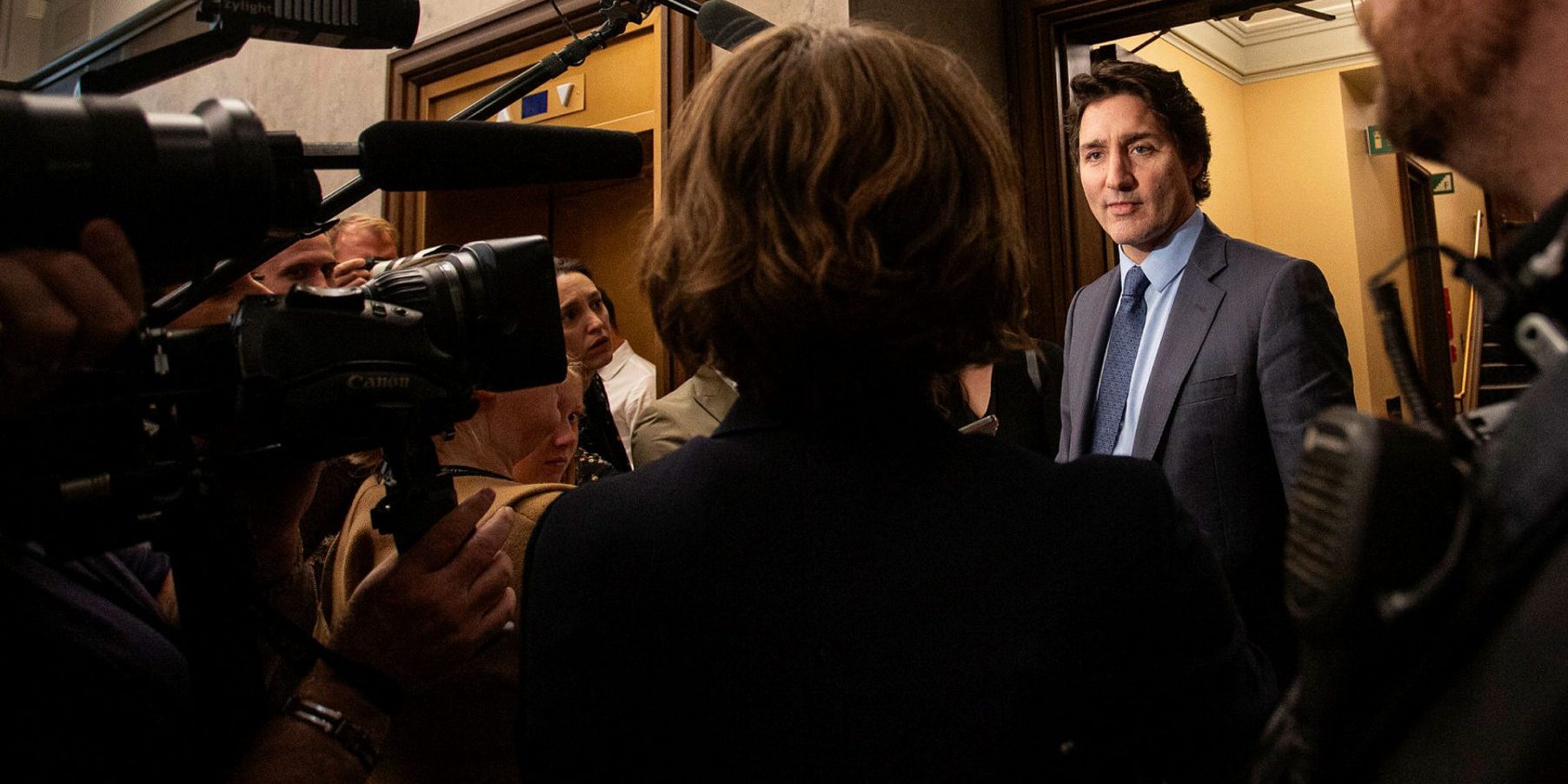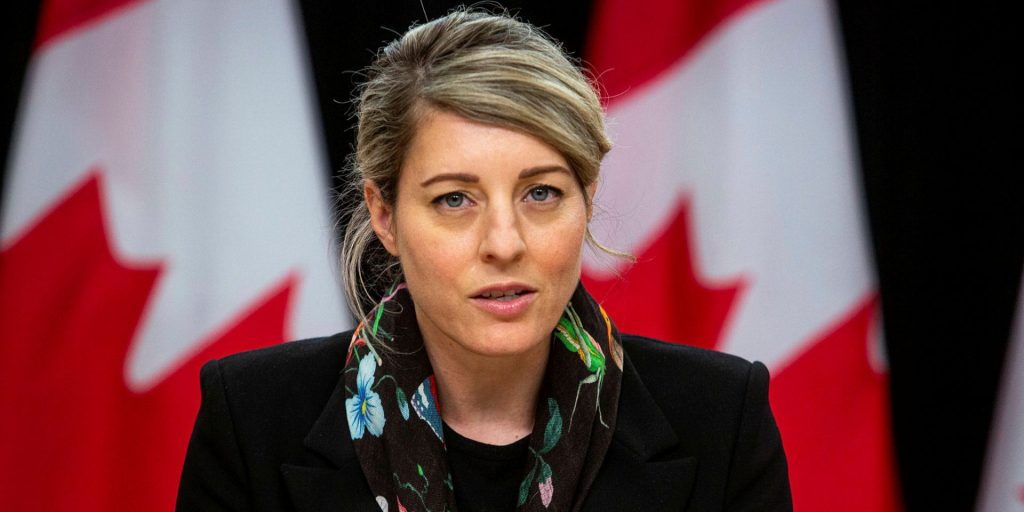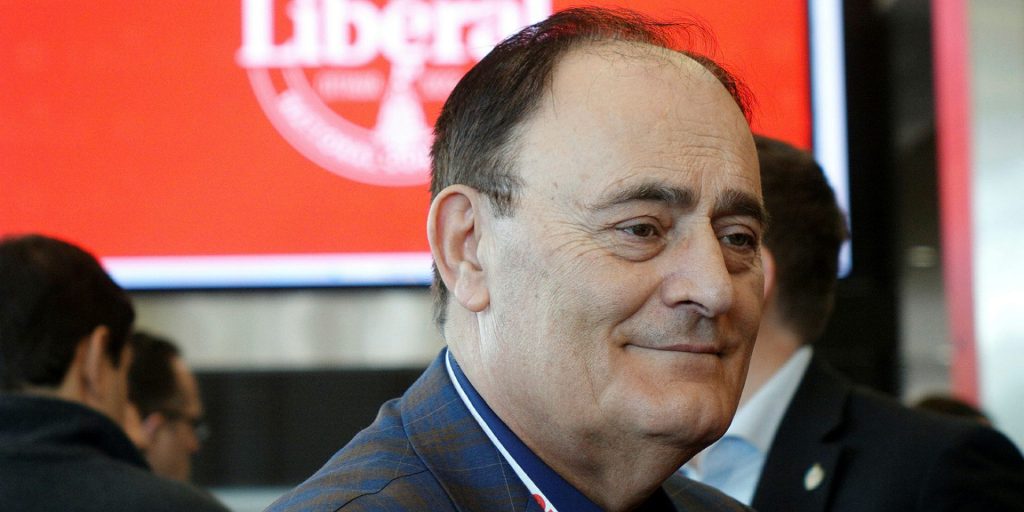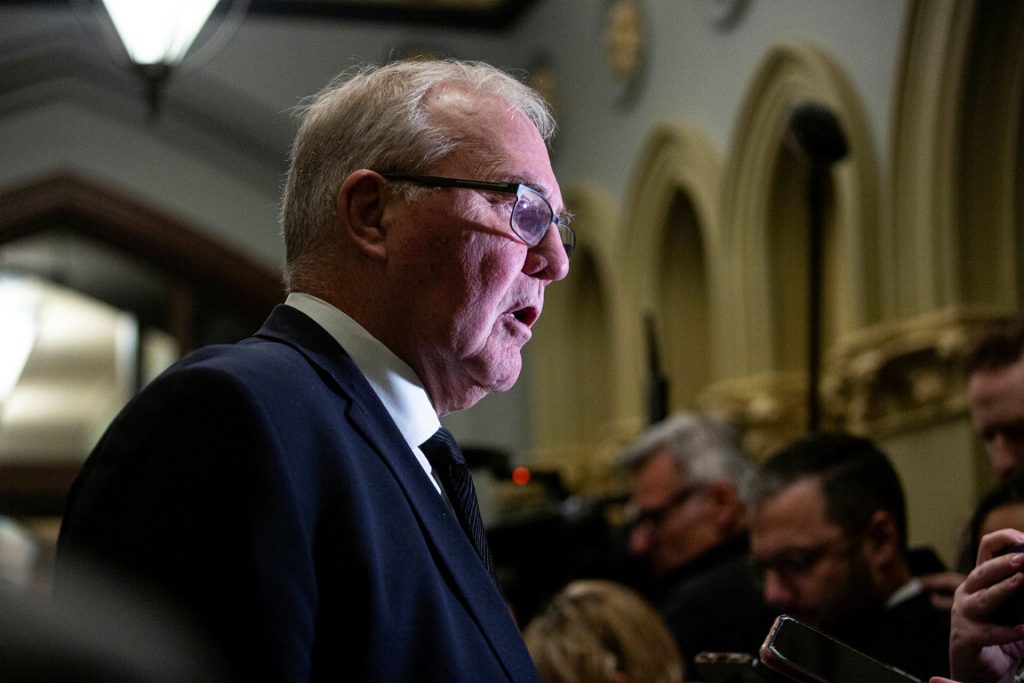Canada’s stance on Israel-Hamas war an extension of past approaches to region, experts say

The Canadian government’s support for a U.S. and European-backed “humanitarian pause” in hostilities between Israel and Hamas, instead of a ceasefire urged by the United Nations and some MPs, is consistent with the country’s past approaches to conflict in the region, foreign policy experts say, though the stance limits the extent to which Canada can play a leading role in mediating an end to the violence.
“There’s still this myth that people constantly repeat from various sides that Canada used to be an honest broker in the Israeli-Palestinian conflict,” said Thomas Juneau, a public and international affairs associate professor at the University of Ottawa and former Defence Department analyst. “We’ve been on the side of Israel for decades … even though we say rhetorically that we support a two-state solution, in practice, especially in more recent decades, we have not done very much in support of that.”
Since the Hamas attack on Israeli civilians and military personnel in southern Israel on Oct. 7, the federal government has reiterated its view that Israel has a right to self-defence in accordance with international law, while calling for a humanitarian corridor to be established in support of Palestinian civilians in the Gaza Strip. The leaders of Canada, the U.S., U.K., France, Germany, and Italy issued a joint statement on Oct. 22, repeating those sentiments.
Approximately 1,400 Israelis were killed in the Oct. 7 attacks, according to official statement from Israel’s government. The Hamas-controlled health ministry in Gaza said that more than 7,000 people have been killed in the territory since Israeli attacks in response to the massacre started.
Foreign Affairs Minister Mélanie Joly (Ahuntsic-Cartierville, Que.) and International Development Minister Ahmed Hussen (York South–Weston, Ont.) attended a peace summit in Cairo, Egypt, on Oct. 21 and 22.
“Palestinian and Israeli civilians are equal,” Joly said at the summit. “Canada is clear. We support Israel’s right to self-defence in accordance with international law, and we continue to demand that Hamas releases all hostages and that hostages be treated humanely as international law indicates. Four hundred Canadians in Gaza must also be able to come back home.”

“Today, I’m reaffirming our commitment to Palestinians’ right to self-determination which includes a two-state solution where Israelies and Palestinians can live together in dignity, peace, security, side by side,” she said. “More than ever, I’m commited to working with all of you to create the political horizon that is vital in achieving this vision.”
Juneau said Canada’s approach to the current crisis was consistent with its support for Israel in recent decades. He said there was “myth-making” in references to the role the country held as a broker in the region in the past, including during the establishment and international recognition of Israel in the 1940s, and during the Suez Crisis in 1956.
“Those actors playing the role of mediator [are] Qatar, it’s Egypt, in its own way the U.S. will do it in the future, too,” he said. “To be a mediator, you need to have the trust of both sides, you need to have relations with both sides. But Canada doesn’t have any relations with Hamas, we can’t, so there’s no scope for us to be a mediator there.”
Canada has listed Hamas as a terrorist entity since 2002.
Ceasefire versus pause

The Canadian government has also resisted calls from the NDP, Green Party, and some Liberal backbenchers to request a ceasefire. Last week, however, Prime Minister Justin Trudeau (Papineau, Que.) told reporters in Ottawa that “humanitarian pauses” in the conflict were something “that Canada supports.”
Asked about the difference between a humanitarian pause and a ceasefire, Juneau said the terminology varied according to each conflict, but that in a general sense, steps in a peace process existed on a continuum. On the one side of the continuum were peace accords, in which the hostile parties negotiate and agree on a lasting peace process. Humanitarian pauses, meanwhile, were “pretty much on the other end of the spectrum of possible interventions like that,” he said.
“There’s no ceasefire, there’s no agreement by either side to stop the violence on any kind of sustained basis,” he said of a humanitarian pause. “There’s just a very technical agreement, often as a result of mediation, which is probably the case here, to allow humanitarian assistance to come in, and that’s it.”
Speaking to reporters on Oct. 25 about the differences between the terms, Liberal MP Rob Oliphant (Don Valley West, Ont.), parliamentary secretary to Joly, said his understanding was that “when we have a war, we have guns being fired. When we have a ceasefire, we have guns laid down. When we have a humanitarian pause, we have guns poised but not firing.”
The Conservative Party has also backed the call for humanitarian pauses. Conservative MP Michael Chong (Wellington-Halton Hills, Ont.), his party’s foreign affairs critic, issued a press release on Oct. 24 in which he said Conservatives “support efforts to allow Canadian citizens and other foreign nationals to be able to safely exit Gaza and return to their country of citizenship. Those efforts, by necessity, require temporary pauses in military activity to ensure the safety of those involved.”
“We have also supported efforts to bring food, water, medicine and other humanitarian aid to the innocent civilians of Gaza, via so-called ‘humanitarian corridors,’” Chong said in the release. “We support temporary pauses for these humanitarian reasons, while continuing to recognize that Israel has a right to defend itself and take action to eliminate the threat posed by Hamas.”
Bloc Québécois Leader Yves-François Blanchet (Beloeil-Chambly, Que.) also asked in Question Period on Oct. 24 whether Canada would follow the lead of European countries such as France, Spain, and the Netherlands in calling for a pause.
UN Secretary-General António Guterres, meanwhile, has repeatedly called for a humanitarian ceasefire to both Israel and Gaza, including in remarks to the Security Council on Oct. 24. He also said that he was “deeply concerned about the clear violations of international humanitarian law that we are witnessing in Gaza,” though he did not name who was committing those violations.
The calls for a pause are also short of some MPs’ request for a ceasefire in an Oct. 20 letter to Trudeau. Among the 33 signatories were 23 Liberals, eight NDP MPs, and both Green MPs. The Liberals listed on the letter included former minister Omar Alghabra (Mississauga Centre, Ont.), and current parliamentary secretaries Paul Chiang (Markham-Unionville, Ont.), Adam van Koeverden (Milton, Ont.), Irek Kusmierczyk (Windsor–Tecumseh, Ont.), Jennifer O’Connell (Pickering–Uxbridge, Ont.), and Sameer Zuberi (Pierrefonds–Dollard, Que.).
“Canada has long been a voice for peace. The longer this conflict goes on, the more innocent civilians will pay with their lives,” the letter said. “We demand that Canada join the growing international call for an immediate ceasefire. Canada must act before more innocent children are killed.”

Liberal MP Fayçal El-Khoury (Laval-Les Îles, Que.), who did not sign the letter, told reporters on Oct. 25 that he supported the humanitarian pause, with hopes that a ceasefire would follow. “When you see something impossible, like the ceasefire, you have to take some possible steps in order to make the impossible possible.”
Defence Minister Bill Blair (Scarborough Southwest, Ont.), when asked about why the government had not called for a ceasefire, told reporters on Oct. 24 that Israel was still threatened.
“Israel was the victim of a terrorist attack, that threat still exists for them, and we have acknowledged that they, under international law, have a right to defend themselves,” he said. “I have no expectation that a terrorist organization would respect international law or any call for a ceasefire.”
Juneau said a ceasefire at this point in the conflict would benefit Hamas, but noted that “it’s equally true that the absence of a ceasefire is leading and will continue to lead to massive numbers of casualties on the Palestinian civilian side.”
Whether the international community agreed with it or not, Juneau said the Hamas factor meant that “Israel at this point will not entertain that option” of a ceasefire.
Non-government organizations are also divided on the question of a ceasefire. The Centre for Israel and Jewish Affairs (CIJA), as part of a letter-writing campaign to MPs, urged supporters to state that “ceasefires allow Hamas to regroup and implement plans to inflict more pain and suffering on Israelis and Palestinians alike.”
The organization also posted on X (Twitter) on Oct. 25 that “humanitarian pauses can help civilians relocate and receive aid. A ceasefire is a different matter and will not bring peace.”
Meanwhile, representatives of Independent Jewish Voices Canada, Arab Canadian Lawyers Association, Oxfam Quebec, the United Church of Canada, and the Public Service Alliance of Canada called for a ceasefire in Ottawa during an Oct. 26 press conference.
“Canada has a moral and legal obligation to prevent and stop genocide, and Canada’s inaction and support for Israel‘s actions in Gaza makes Canada complicit to a genocide,” said Dania Majid from the Arab Canadian Lawyers Association. “If international humanitarian law is to have any meaning or effect, Canada and the international community must insist on an immediate ceasefire, and an end to the occupation of Palestine.”

Corey Balsam, national co-ordinator of Independent Jewish Voices Canada, said some members of his organization knew victims and hostages from the Oct. 7 attacks. “At the same time, we reject the use of our mourning as a justification to kill, maim, starve, displace, dehumanize, or otherwise leave to die the more than two million Palestinians in the Gaza Strip,” he said.
“There can be no military solution to this issue, because with every airstrike, every parent that loses their child, every child that loses their parent, Israel is creating more and more anger and despair that will just push more and more people into the arms of militant factions such as Hamas,” Balsam said.
Mira Sucharov, professor of political science at Carleton University specializing in Israeli-Palestinian relations and Jewish politics, told The Hill Times that every community was heterogeneous, and that there were varied opinions within Canada’s Jewish community about the best path forward.
“Some Jews, like me, are calling for a ceasefire because what I want to see is no more lives lost at this moment,” she said. “Then there are other Jews who will hear ‘ceasefire’ and say, ‘You are denying Israel the right to continue rooting out Hamas.’”
The latter view is held by friends of Sucharov who live in a kibbutz targeted by Hamas on Oct. 7, she said. “They barely escaped being taken hostage. They were holed up in their secure room hearing what they correctly assumed were militants roaming outside their front door,” she said. “That friend of mine is saying it’s now us against them, it’s a war for our survival, literally. So, if they hear people calling for a ceasefire, they’re going to think that we’re saying that you need to stop the war that is going to eliminate the threat to your life.”
Sucharov said communities in Canada felt broader society had misunderstood their messages or were not attuned to their suffering.
“The Jewish community has had its Holocaust trauma re-triggered, intergenerational trauma, triggered by the largest massacre of Jews since the Holocaust, on Oct. 7,” she said.
That misunderstanding can extend to symbols and rallies as well, she said.
“When Jewish communities come together to mark the heinous murders by Hamas of 1,400 Israelis, and they bring Israeli flags to stand in solidarity with those victims, I don’t think they fully realize how the Israeli flag is viewed by Palestinians, especially because the Israeli flag is the flag that accompanies the military,” she said. “When Palestinians or Palestine solidarity supporters rally with their flag, when they rally in the aftermath of Oct. 7, Jewish communities see it as celebrating or at least ignoring or masking the atrocities of Oct. 7.”
Juneau said Canada’s main interest diplomatically should be on whether to continue repatriating Canadians from the region. It will be “extremely difficult” to evacuate the estimated 400 Canadians from Gaza, he said, but efforts there were ongoing.
During a press conference from Abu Dhabi, United Arab Emirates, on Oct. 23, Joly said 19 flights had evacuated approximately 1,600 Canadians, permanent residents, and family members from Tel Aviv to Athens, Greece. The last flight left Tel Aviv on Oct. 23 due to declining demand and a resumption of some commercial services out of Israel, Joly said.
Joly reiterated during the press conference that Canadians currently in Lebanon should leave while commercial options were still available, amid fears that the region could destabilize further. Juneau said a hypothetical evacuation of citizens and permanent residents from Lebanon would be a major undertaking.
“Officially the declared numbers are about 14,000 [people who may need evacuation in Lebanon], but in practice, there’s possibly three times as many,” he said. “Any kind of repatriation at that level is huge.”
sjeffery@hilltimes.com
The Hill Times
MPs that signed the Oct. 20 ceasefire letter
Liberal MPs
Omar Alghabra (Mississauga Centre, Ont.)
Shafqat Ali (Brampton Centre, Ont.)
René Arseneault (Madawaska-Restigouche, N.B.)
Chandra Arya (Nepean, Ont.)
Tony Van Bynen (Newmarket-Aurora, Ont.)
George Chahal (Calgary Skyview, Alta.)
Shaun Chen (Scarborough North, Ont.)
Paul Chiang (Markham-Unionville, Ont.)
Michael Coteau (Don Valley East, Ont.)
Lena Metlege Diab (Halifax West, N.S.)
Nathaniel Erskine-Smith (Beaches—East York, Ont.)
Iqwinder Gaheer (Mississauga-Malton, Ont.)
Arielle Kayabaga (London West, Ont.)
Iqra Khalid (Mississauga-Erin Mills, Ont.)
Adam van Koeverden (Milton, Ont.)
Irek Kusmierczyk (Windsor–Tecumseh, Ont.)
Joël Lightbound (Louis-Hébert, Que.)
Yasir Naqvi (Ottawa Centre, Ont.)
Jennifer O’Connell (Pickering–Uxbridge, Ont.)
Patrick Weiler (West Vancouver—Sunshine Coast—Sea to Sky Country, B.C.)
Jean Yip (Scarborough-Agincourt, Ont.)
Salma Zahid (Scarborough Centre, Ont.)
Sameer Zuberi (Pierrefonds–Dollard, Que.)
NDP MPs
Niki Ashton (Churchill—Keewatinook Aski, Man.)
Alexandre Boulerice (Rosemont—La Petite-Patrie, Que.)
Don Davies (Vancouver Kingsway, B.C.)
Leah Gazan (Winnipeg Centre, Man.)
Matthew Green (Hamilton Centre, Ont.)
Gord Johns (Courtenay Alberni, B.C.)
Peter Julian (New Westminster—Burnaby, B.C.)
Lindsay Mathyssen (London—Fanshawe, Ont.)
Green MPs
Elizabeth May (Saanich—Gulf Islands, Ont.)
Mike Morrice (Kitchener Centre, Ont.)





 LICENSING
LICENSING PODCAST
PODCAST ALERTS
ALERTS













